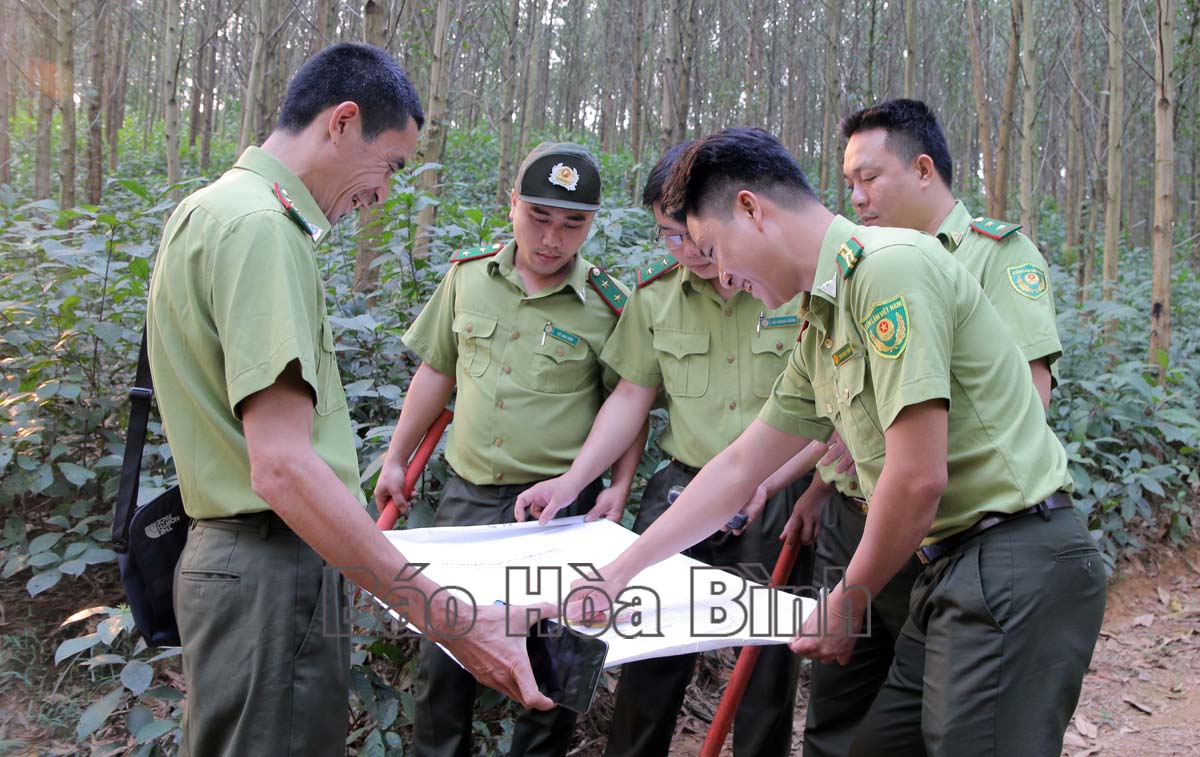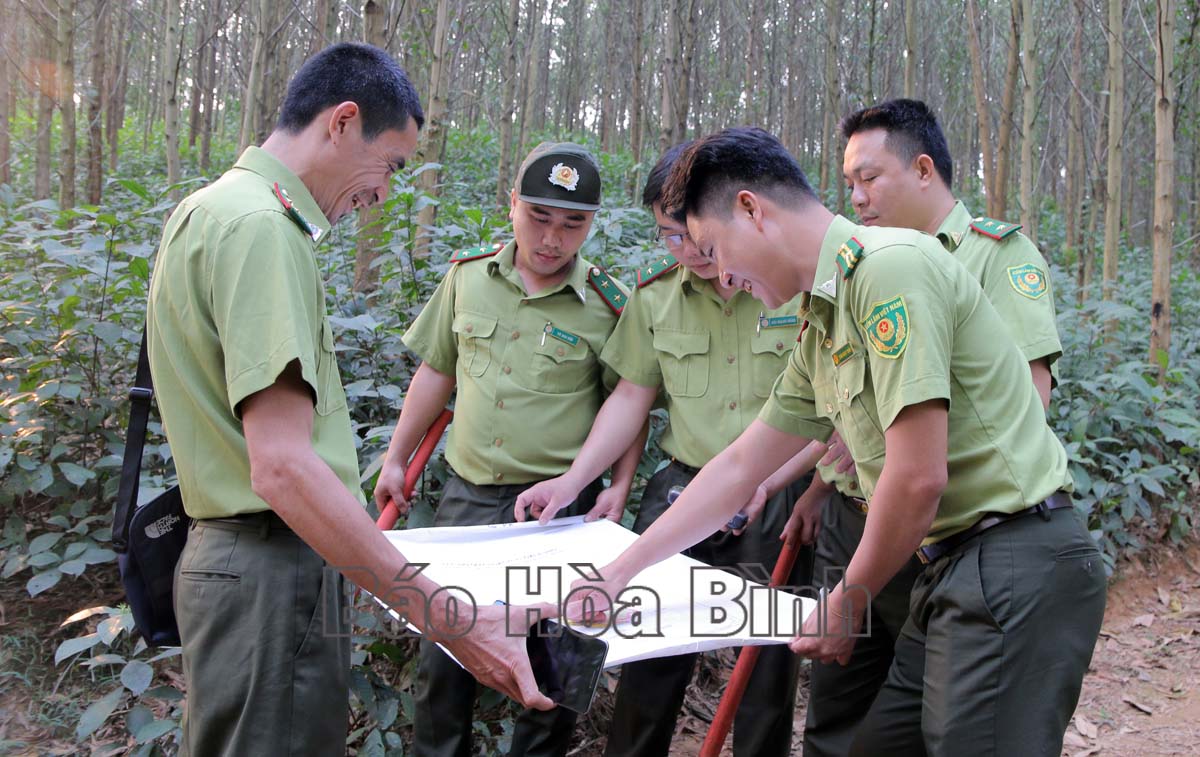
(HBO) – Hoa Binh province's Lac Son district has a total forestry area of 35,256 hectares, covering 60.7 percent of its natural land. Of the total area, 12,432.5 hectares has been put in the planning of special-use forest, along with 8,961 hectares of protective forest and 13,862.3 hectares of production forest. The ratio of forest coverage in the district is 53 percent.
Forest rangers in Lac Son conduct forest patrol in Vu Ban
town
Being aware of the significance of forest in socio-economic development, water
resources, environmental protection and climate change mitigation as well as
wood production and forestry product supply, over the past years, the
management and protection and well as the prevention of wildfire in Lac Son
district have seen good progress with only a small number of violation cases
and no hotspot in the field. The results are attributed to the drastic
management of the People’s Committees of the district as well as communes and
towns, the active consultations of the district ForestRanger Station, and
the close and responsible coordination of local authorities and forest owners.
With the aim of protecting the forests from the grassroots level, especially
the existing natural forest areas, right from the beginning of the year, the
People’s Committee of Lac Son district has directed relevant agencies, communes
and towns to apply urgent measures on forest management and forest fire
prevention, while strengthening communications in various forms to groups on
the significance of forest protection and development.
Local authorities have encouraged and persuaded local residents and forest
owners to plant large timber forests and switching small timer forests to large
timber forests in certain forest areas and planted forest areas in the
district. The district has also implemented the model of intensive large timber
forest plantation in Xuat Hoa commune.
Lac Son currently has 25 forestry varieties production and trading facilities
with 7 hectares of incubator, ensuring high quality varieties for forest
plantation. In the first six months of this year, the district planted 463.33
hectares of concentrated production forests, along with 14,800 scattered trees.
The locality harvested 475.26 hectares of concentrated planted forests with an
output of 22.5 c.m of wood and revenue of over 39.4 billion VND (1.71 million
USD).
The district has 498.7 hectares of forest receiving
ForestStewardship Council(FSC) licence in Tan My, Huong Nhuong,
Xuat Hoa, Binh Hem, and Yen Phu communes with good protection and
development./.
According to data from the Hoa Binh Provincial Party Committee, the industrial production index for the first six months of 2025 is estimated to have increased by 20% compared to the same period last year. This marks the highest year-on-year growth rate for this period since 2020.
In the first six months of 2025, Hoa Binh province’s export turnover was estimated at 1.145 billion USD, marking an 18.11% increase compared to the same period in 2024. Import turnover was estimated at $ 804 million, a 17.15% increase, which helped the province maintain a positive trade balance.
The lives of the ethnic minority farmers in Tan Lac district have gradually improved thanks to the new directions in agricultural production. This is a testament to the collective strength fostered through the professional associations and groups implemented by various levels of the district’s Farmers’ Union.
With the motto the "product quality comes first,” after nearly one year of establishment and operation, Muong village’s Clean Food Agricultural and Commercial Cooperative, located in Cau Hamlet, Hung Son Commune (Kim Boi district), has launched reputable, high-quality agricultural products to the market that are well-received by consumers. The products such as Muong village’s pork sausage, salt-cured chicken, and salt-cured pork hocks have gradually carved out a place in the market and they are on the path to obtaining the OCOP certification.
In the past, the phrase "bumper harvest, rock-bottom prices" was a familiar refrain for Vietnamese farmers engaged in fragmented, small-scale agriculture. But today, a new spirit is emerging across rural areas of Hoa Binh province - one of collaboration, organisation, and collective economic models that provide a stable foundation for production.
Maintaining growing area codes and packing facility codes in accordance with regulations is a mandatory requirement for agricultural products to be eligible for export. Recently, the Department of Agriculture and Environment of Hoa Binh province has intensified technical supervision of designated farming areas and packing facilities to safeguard the "green passport" that enables its products to access international markets.



